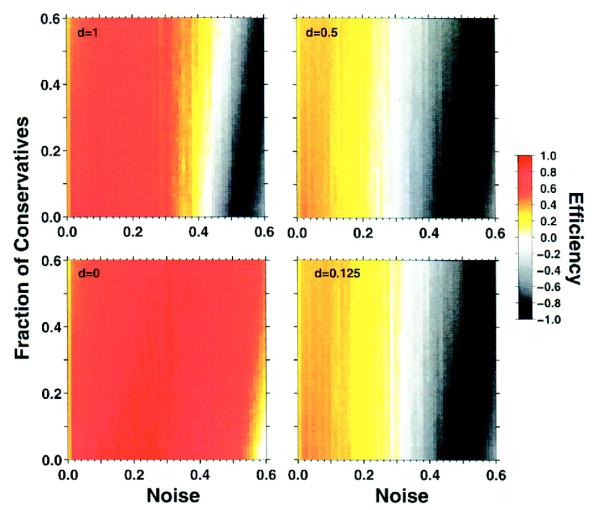Fig. 4.
Effect of selective distrust. We consider a system in which well-intentioned agents take partial consideration of partisan agents’ opinions and vice-versa. The discount parameter d quantifies the weight a well-intentioned agent assigns to the opinion of a partisan agent. We consider a population with a fraction fc of conservative agents and 5% of partisan agents, both of them with bias strength s = 2/7, and 5% of population being partisans to the minority opinion. We show the efficiency of the population as a function of fc and of noise. For d > 0.5, partisans may converge to the positive state if a qualified majority of their neighbors are already in that state. In such case, the population can still attain a relatively high efficiency for a wide range of parameter values. In contrast, when 0 < d ≤ 0.5, partisans are unlikely to change states even when all their neighbors are in the opposite state. In such conditions, the small fraction of partisans acts as a constant bias toward the negative state, resulting in a drastic reduction of the population’s efficiency. Only for d = 0, that is when the two groups, well-intentioned and partisan agents, completely disregard each other does the system recover the ability to efficiently solve the density classification task.

